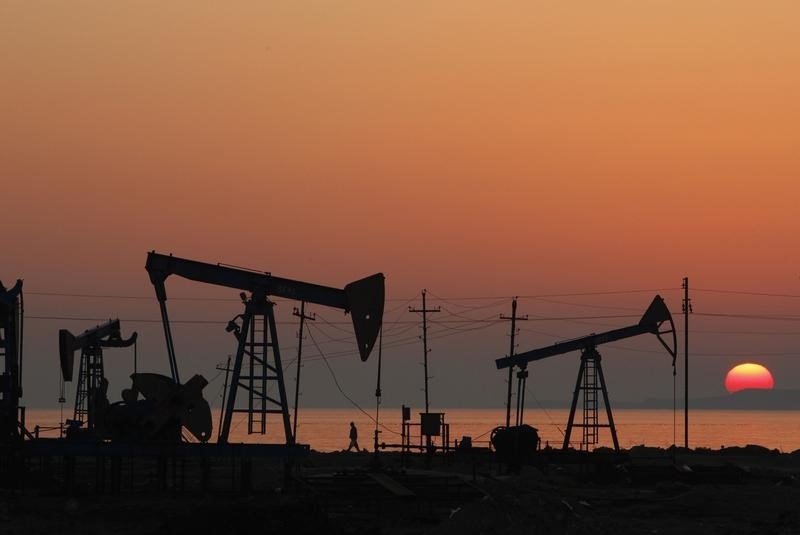By Libby George
LONDON, Feb 5 (Reuters) - Even as millions of barrels of oil
are pumped at a loss at current prices, only a fraction of the
production has been shut, industry research group Wood
Mackenzie said on Friday.
The apparent financial resilience of some producers could
delay a recovery in the oil market that has seen an oversupply
of 2 million barrels per day (bpd) push prices down by some 70
percent over the past 18 months.
"Curtailed budgets have slowed investment which will reduce
future volumes, but there is little evidence of production
shut-ins for economic reasons," said Robert Plummer, Wood
Mackenzie's vice president of investment research.
Just 100,000 bpd out of the 96.1 million bpd of oil pumped
worldwide have been closed so far since the price plunge, most
of it in Canada's oil sands, conventional U.S. projects and
ageing fields in Britain's North Sea, according to the research.
The group's analysis showed that 3.4 million bpd of oil
pumped now, 3.5 percent of worldwide production, is "cash
negative" at Brent prices of $35 per barrel. Brent was trading
at $34.60 per barrel on Friday morning, meaning selling this
oilcurrently costs more than it takes to get the barrels out of
the ground.
But the hope of a rebound could keep even these from
closing.
"Given the cost of restarting production, many producers
will continue to take the loss in the hope of a rebound in
prices," Plummer said.
The bulk of the most expensive to produce oil is in Canada,
where 2.2 million bpd is "cash negative" at current prices, most
of it in oil sands and small conventional wells. An additional
230,000 bpd in is Venezuela's heavy oil fields, and 220,000 bpd
is in the United Kingdom.
Those operators, Wood Mackenzie said, were likely to store
their oil to sell later, only shutting fields if mechanical or
maintenance problems required investments they "can't
rationalise" at current prices.
In the United States the research found that aggressive cost
cutting had enabled more of the shale plays to make money - and
survive - at lower prices.
"In the past year we have seen a significant lowering of
production costs in the U.S., which has resulted in only 190,000
bpd being cash negative at a Brent price of $35," said Stewart
Williams, vice president of upstream research at Wood Mackenzie,
adding that "the majority" only become cash negative at Brent
prices "well-below $30 per barrel."
Wood Mackenzie currently forecasts Brent prices to avergage
$41 per barrel in 2016.
